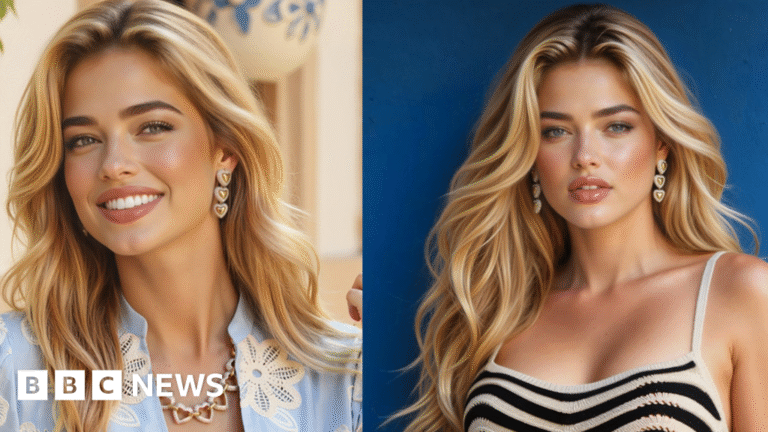The Rise of AI-Generated Models in Fashion Advertising
In an unexpected twist within the fashion industry, AI-generated models are making headlines. The August issue of Vogue features an advertisement from Guess showcasing a stunning blonde model, only to reveal in fine print that she was created entirely by artificial intelligence. This marks a significant first for the magazine and highlights the increasingly blurred lines between reality and digital creation.
Controversy Surrounding AI in Fashion
The use of AI-generated models has sparked considerable debate. Critics argue that it undermines efforts towards diversity and authenticity, especially at a time when the fashion industry is striving to embrace a broader range of beauty standards. Young consumers, often heavily influenced by media portrayals of beauty, may find themselves grappling with even more unattainable ideals.
Spotlight on Seraphinne Vallora
Seraphinne Vallora, the creative team behind the Guess advert, including founders Valentina Gonzalez and Andreea Petrescu, explains their unique process. They were approached by Guess to develop an AI model featuring various looks. Gonzalez mentions that creating these models is not as easy as it sounds, involving a complex process that can take up to a month from concept to completion.
Industry Reactions and Concerns
Industry veterans, such as Felicity Hayward, voice their discontent, criticizing the trend as “lazy and cheap.” She worries that brands may prioritize cost-cutting over progress in body diversity. As the fashion world made strides toward inclusivity in the past decade, she fears this development could reverse those gains.
The Technology Behind AI Models
While Gonzalez and Petrescu maintain they are not reinforcing narrow beauty standards, they acknowledge the lack of diversity among their AI-generated models. Efforts to include various skin tones often receive little engagement on social media, leading them to prioritize images that generate more conversation. However, they claim that the technology is not yet sophisticated enough to create plus-size models.
The Psychological Impact of Unrealistic Beauty Standards
The arrival of AI-generated figures also raises serious concerns about mental health. Experts warn that exposure to digitally created images that depict unattainable beauty can exacerbate poor body image and even lead to eating disorders. Vanessa Longley, CEO of the charity Beat, emphasizes the risks associated with unrealistic portrayals of bodies.
What Lies Ahead for the Fashion Industry
As the conversation surrounding AI models continues, industry leaders are divided on the potential future. While some, like Sinead Bovell, argue that AI could eventually provide consumers with personalized fashion experiences, others fear a trend toward more artificial creations could distance society from relatable representations of beauty. The future remains uncertain, but one thing is clear: the advent of AI in fashion is reshaping the landscape in profound ways.
